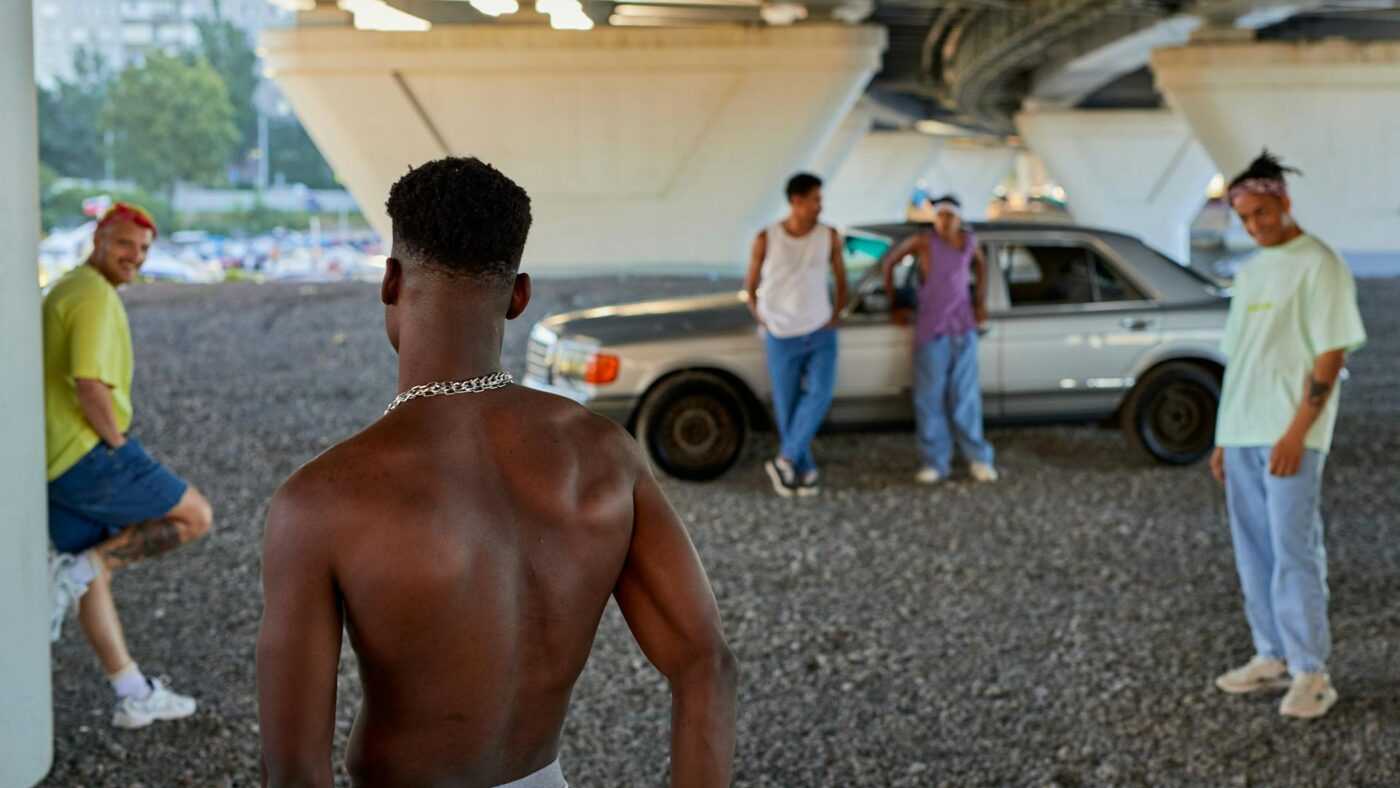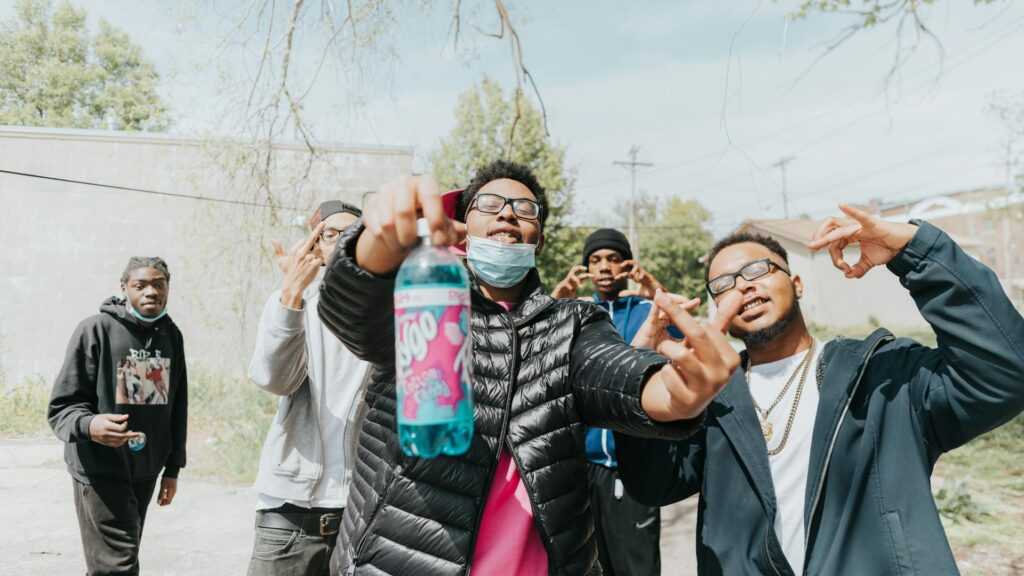Science
The Sun’s Ring of Fire and a Planetary Parade: A Captivating Celestial Show
13 February 2026

Rich Sweden is doing well, it is worse with the Swedes. They lack security and also run out of patience. Subjects of the kingdom repetitively reports about murders in the streets in broad daylight. As a consolation, they receive information from experts: Well, it may still take some time, for example, 25 years.
Sweden last waged war 210 years ago. Untouched by the world conflicts of the 20th century, with the social democrats at the helm almost continuously since the 1930s, it appeared to be a downright “boring” country. Indeed, it was shaken from time to time by events off the front pages, such as the deadly assassination of Olof Palme. The then prime minister, trusting in the peaceful attitude of his citizens, dismissed the security guards and walked the streets of Stockholm with his wife like any subject of the social kingdom. He paid for it with his life.
But anyway, Sweden remained for decades in mass understanding the homeland of ABBA songs, meatballs or practical furniture from Ikea. The dark sides of the country were associated more with gripping crime stories than real danger.
So how did it happen that today’s Sweden is seen as a European hatchery for young, armed-to-the-teeth gangsters, also, or perhaps especially from immigrant backgrounds?

On April 10, this year, a Swedish citizen of Polish origin was murdered in Stockholm. The 39-year-old was walking his son to the pool. He had witnessed the backstreet drug trade and had advised the dealers not to do so at least on this street. Shortly after, he was fatally shot in the head.
People perish in shootings, after explosions of planted bombs or stabbings. Tragedies happen so regularly that Sweden has become a sociological phenomenon in this respect, attracting international attention.
Since 2015, the homicide rate in the kingdom has maintained decidedly above the European average. Sociologists from the European Homicide Monitor (EHM) at Leiden University in the Netherlands studied the repeatability and characteristics of homicides involving firearms in Denmark, Finland, the Netherlands, Sweden and Switzerland between 2001 and 2016. It turned out that in all countries the number of murders with the use of such weapons had been steadily decreasing. Except for Sweden.
An investigation into this phenomenon began by comparing data from 2003–2017 in 19 other European countries across to the EU and Norway. Based on sources from Eurostat, WHO and Scandinavian governments, it was calculated that the average level of gun killings in Sweden increased steadily. By the end of the study, it completely diverged from the average rate of such murders in other countries.
The Swedish rate was about four deaths per million inhabitants, compared to the European average of 1.6 deaths. Whereby, the Swedish trend had not stopped at this level. Five years later, the rate climbed further to 5.5 deaths per million.
We recommend: The Beauty Myth: Past and Present. Naomi Wolf’s Observations Still Hold True Today
In an unforgettable 2015, liberal Sweden opened wide the gates for immigrants, taking in relatively the most of them in the whole of Europe. At that time, more than 160,000 people from Africa, Asia and the Middle East came to the kingdom of social privileges. Within a few years, nearly 100,000 of them obtained citizenship.
For Somalis, Eritreans, Syrians or Afghans, it was not a difficult process, as there were no requirements to learn a language or even pass a test on the basics of Swedish history or culture.
Subsequent waves of exotic newcomers were automatically “installed” in the suburbs of the agglomerations. In this way, the apparent paradise for newcomers from all over the world turned into ghettos, which, left to themselves, followed their own rules.
Before the Swedes realized it, a new generation had grown up there. A generation without prospects, and shaped by their parents‘ struggles during the crisis of the 1990s. Many young people from the suburbs wanted to finally experience wealthy Sweden without identifying with it at all.
The easiest way to achieve this was to break the rules prevailing in the kingdom. In the most populated country of Scandinavia, gangs were formed on a massive scale. Their leaders over time were able to manage their people from Lebanon or Turkey, because the structures of their organizations were already stable like bridge spans.
One can start a “career” in a gang at the age of 13–14. Anyway, teenagers are particularly valued by experienced gangsters because they are seen as long-term assets. Under Swedish law, underage criminals go to juvenile detention centers for four years at the longest, even if they commit murder.
Therefore, members of the gangs did not scruple and treated the territory of Sweden as a battlefield. Criminologist Ardwan Khoshnood believes that targeting has markedly changed in the local bandit world. Previously, shots were usually fired in the hands or feet. Now, according to the experts, shooters choose a head because they “shoot to kill.”
Initially, the Swedes saw no threat to themselves in the gang war over territories in the suburbs of Stockholm or Gothenburg. A large part of the media and government institutions supported them in their inaction. It was not uncommon that attempts to draw attention to the dangerous escalation of the situation were often met with the labeling of such a person as a racist.

When the Crime Prevention Agency, an official Swedish institution, announced that it would start presenting crime because of ethnicity, one of the most popular newspapers – Aftonbladet – did not hide its outrage.
In case the Crime Prevention Agency distinguishes between “Swedes” and “immigrants,” it will also imply that crime might be caused by ethnic background.
This, in Aftonbladet’s view, “would instantly play into the hands of racists.”
The right-wing extremists and their lies about a connection between ethnicity and crime cannot pass unchallenged
– the daily announced in June 2002.
The authors of such opinions assumed in advance that scientific data would portray immigrants negatively, from which opponents of leftist governments would undoubtedly benefit.
Later studies confirmed the thesis that the root causes of the problems found in suburbs were due to an overrun by people born far beyond the borders of the country. In 2017, the Expressen newspaper surveyed 192 people in Stockholm who, according to police records, were gang members or were tied in with them. More than 80% were migrants or residents with two parents born abroad. Including those people whose one parent was born abroad, the percentage rose to 95%.
In turn, the studies by Dagens Nyheter, a liberal daily, included the files of a hundred criminals registered or suspected of shooting in public places between 2013 and 2017. 90 of them had one or two parents born abroad. In 2018, the state television program Uppdrag Granskning surveyed people registered for rape or attempted rape between 2012 and 2017. Nearly 60% of them were born abroad.
Of course, similar data cannot be attributed a priori to individual ethnic groups. However, acknowledging this information at the appropriate time could help correct errors soon enough. But that would involve political responsibility. Successive governments would have to admit that their “open arms” policy needed a solid correction. For a long time, no one was ready for it, both in Sweden and beyond.
In February 2017, Donald Trump explained why he wanted to introduce stricter migration policies.
Look at what is happening in Germany, what happened last night in Sweden. Sweden, who would believe this? They took in large numbers [of migrants]. They are having problems like they never anticipated. Look at what is happening in Brussels, look at Nice, look at Paris
– he said in a speech in Florida.
The contemporary President of the United States referred to terrorist attacks, behind which were migrants or their descendants. That in Sweden neither before nor for a long time any similar attack was recorded.
The progressive world was quick to criticize Trump‘s mistake, despite, after all, he associated safe Scandinavians with dramatic events unfolding in Belgium or France, where the army had been deployed to the streets. The BBC quoted, among other things, a Swedish school librarian who assured on social media:
Nothing has happened here in Sweden. There has not been any terrorist attack here. The main news right now is about Melfest [Eurovision qualifications].
Carl Bildt, the former prime minister and head of Swedish diplomacy, inquired joyfully:
What has he been smoking?
Once again one could think of the uniqueness of Sweden, where the wide-open door policy brings only the intended results.
We recommend: German War Crimes and the Lost Identity
In 2022, Prof. Jerzy Sarnecki, a Swedish criminologist of Polish origin, admitted in an interview for Onet that a problem with crime in migrant districts exists. But, in his opinion, it is exaggerated by politicians and the media. Hence the fear in society.
Still, this society works very well […] there is a lot of talk about shooting because it is a very convenient problem
– said Prof. Sarnecki.
In a year about 40–60 people are shot, but at the same time 450 die from drug overdose. Politicians are preoccupied with this shooting because it can be heard, but the fact that people are dying in public toilets with needles in their veins is unnoticeable in the debate, while it is a seven times more common cause of death. It is about what is politically attractive and what is not
– the professor claimed.
The researcher also had other simple reasons for the thesis that his country is safe like the old Volvo, designed with a square. After all, he says, “the likelihood of dying in a car accident is still much higher,” “crime was in the suburbs before and now is in the suburbs too,” and the growing number of rapes is due to legal changes and the inclusion of subsequent prohibited acts with this concept.
Interestingly, however, according to Prof. Sarnowski, it is a society that is responsible for the lack of integration of migrants, not the migrants themselves, because it allowed the creation of a new lower social class, in which a subculture of violence was formed.
So, were the Swedes, not reacting to the changes in their cities‘ suburbs, prepared for the next waves of migrants and the problems associated with it? Or perhaps, as the problem grew, the kingdom’s politically correct subjects decided that an official talk about shootings and rapes was inappropriate.
In the end, however, they had to admit their mistake. A social democrat Magdalena Andersson, who took over the reign from her party colleague at the end of 2021, diagnosed the situation in the kingdom. She admitted that integration in the country was “too poor, and at the same time we have experienced a very significant level of immigration.”
Society has been too weak, resources for the police and social services have been too weak
– she stated.
She also noted that society has been allowed to stratify. The reasons for this situation included rampant Islamism and right-wing extremism.
Her successor, Ulf Kristersson, from the Moderate Party, regarded as right-of-center, even proposed in September last year that a regular army should be involved in the fight against gangs.
Sweden has never seen anything like it before. No other country in Europe is experiencing anything similar
– claimed Prime Minister Kristersson.
He finally revealed the brutal truth:
Political naivety and cluelessness have brought us to this point. Irresponsible immigration policy and failed integration have brought us to this point.
So, do the Swedes sometimes return longingly to the words of Tage Erlander? The Swedish prime minister in 1946–1969, interestingly also from the social democratic party, wrote in the mid-1960s:
The situation for us Swedes is, then, infinitely more fortunate. Our population is homogeneous, not only in terms of our race but also regarding so many other issues. […] We are a prosperous and fortunate country because we are unified. We think alike and act alike.
Since then, the Swedish social democrats, Sweden and the whole world have changed beyond recognition.
Translation: Marcin Brański
Polish version: Na Północy bez zmian. Szwecja na wojnie z przedmieściami
Science
13 February 2026

Science
13 February 2026

Science
12 February 2026

Zmień tryb na ciemny